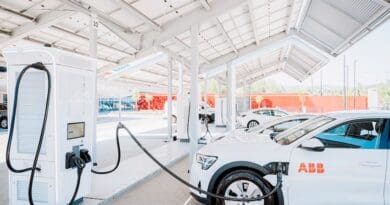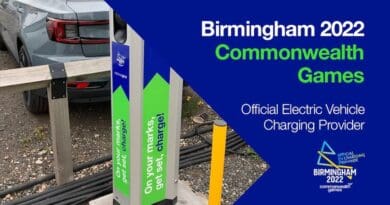
UK electric car sales to jump to over 400,000 in 2025
Sales of new electric cars in the UK are predicted to reach more than 400,000 in 2025 but will still fall short of government-set targets.
According to estimates from EV leasing company DriveElectric, EV sales in the UK will increase from 381,970 in 2024 to 440,000 in 2025. This means that 24 percent of all new cars sold in the UK – a total of 1.84 million annually – will be fully electric.
While an improvement on 2024’s figures, that is still short of the 28% requirement set out in the ZEV mandate.
DriveElectric’s Adam Kemp said that a lack of support for private buyers was likely to hold sales back even as fleet demand continued to grow.
The leasing firm said its overall positive outlook was influenced by a number of factors, including the introduction of more rapid and ultra-rapid chargers to the UK’s charging network, battery costs reducing, and more EVs arriving to market at price parity with petrol and diesel vehicles.
Meanwhile, newer EVs such as the updated Polestar 2 and the recently introduced Audi A6 e-tron offer around 400 miles of range. In doing so, they have helped eliminate range anxiety; one of the biggest roadblocks in EV adoption amongst motorists.
Another driving factor in UK motorists’ swing to electrification is the financial incentives offered to business users and fleets thanks to low Benefit In Kind (BIK) tax rates; these will stand at 2% until April 2025, then rise by 1% each year to 5% in April 2028.
Low BIK rates have fuelled the increasing popularity of salary sacrifice, which can reduce the monthly cost of driving an EV by up to 40 percent for the employees of an organisation.
Kemp, DriveElectric’s partnership director commented: “We are forecasting that electric car sales in 2025 will experience an increase of just over 4% compared to 2024 figures, taking them to 24% of the total new car market, which is significant progress, but this still falls short of the 2025 ZEV mandate target of 28%.
“A key factor in the shortfall is that while businesses and fleets enjoy financial incentives to make the switch to electric cars, and although EVs have lower whole life costs than petrol and diesel cars, there are currently no incentives for private motorists to purchase new EVs.”
The motor industry has made repeated calls for the government to help incentivise private sales of EVs. Proposals have included a temporary reduction in VAT or a rethink of plan to apply the luxury car tax to EVs from April 2025.





